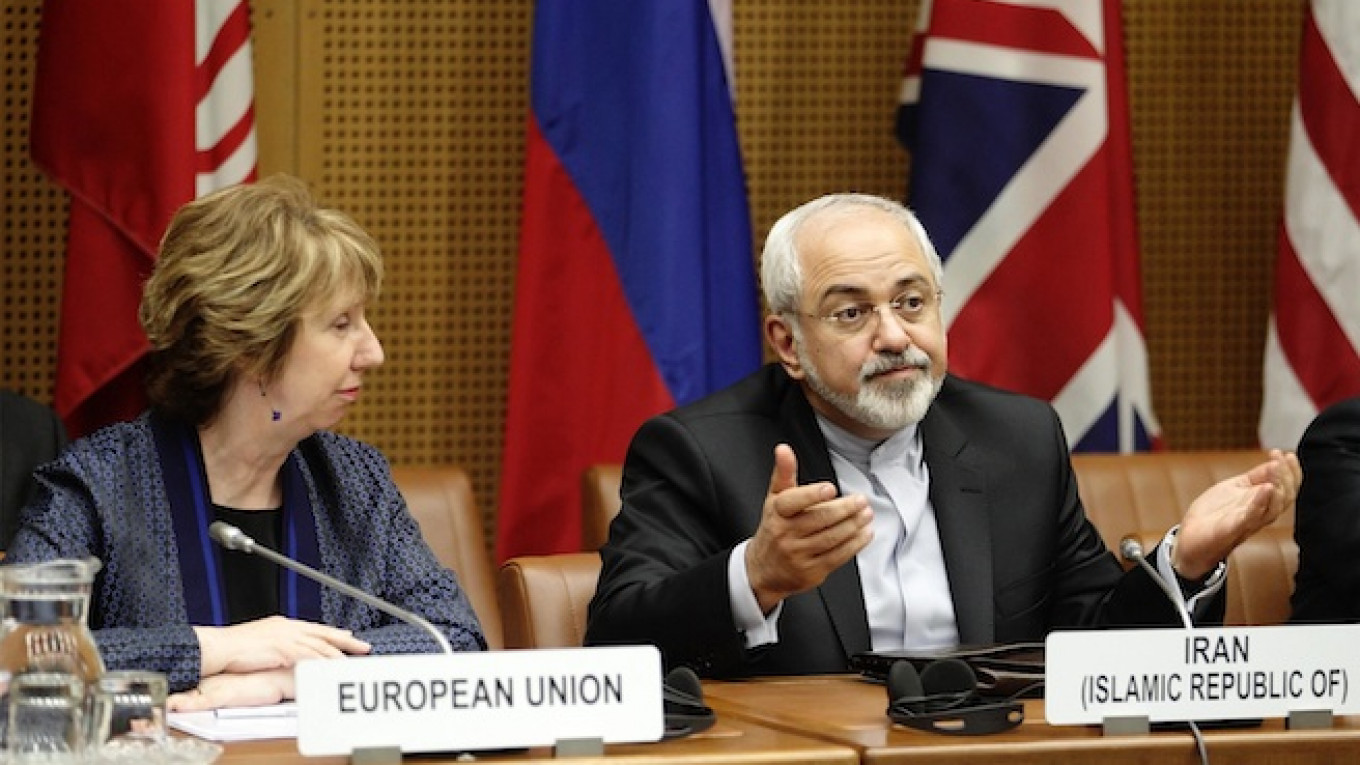France's foreign minister has said "differences in approach" between Russia and some of the other five world powers negotiating with Iran over its nuclear program have appeared in the past few days.
Speaking to the French parliament's foreign affairs committee, Laurent Fabius also said none of the major outstanding issues in the talks had been settled and that the U.S. wanted foreign ministers to join the negotiations in Vienna.
"Until now the P5+1 [six powers] were homogenous, but over the last few days my representatives in the negotiations have seen a certain number of different approaches — and I hope they won't remain — between some of the P5+1 and our Russian partners," Fabius said, without saying what those differences were and which powers were in disagreement with Russia.
"We want to preserve the unity among the P5+1 because that is how we reached a deal before," he said.
The P5+1 is the diplomatic acronym denoting the five permanent members of the UN Security Council — the U.S., Britain, France, Russia and China — and Germany.
Diplomats say France and the other Western powers have broadly held out for stricter terms with Iran than have Russia and China, which have had closer trade relations with Tehran and said in the past that tough sanctions may be counter-productive.
"The minister said there was a difference in approach with the Russians, but this difference is disappearing relatively quickly. We are reassured," a French diplomatic source said.
The overall goal of the negotiations is a deal curbing Iran's nuclear energy program to minimize the risk of any diversions into bomb-making in exchange for a removal of tough economic sanctions imposed on Tehran.
The powers and Iran have less than two weeks to bridge wide differences on the future scope of Iran's enrichment program and other issues if they are to meet a self-imposed July 20 deadline for a deal.
Fabius said so far nothing had been agreed.
"None of the primary points are resolved, be it the question of [uranium] enrichment, number of centrifuges, the Arak reactor, how we treat Fordow [enrichment plant], how the international control is done, how sanctions will be lifted. None of these questions currently have been ticked off."
As impressions have risen among Iran's foes, especially Israel and the Gulf states, that the U.S. has turned somewhat softer on Tehran, France has defended their interests by taking the toughest line among the six powers. In 2011, it successfully pushed for a European Union oil embargo and stricter controls over Iran's central bank.
After marathon but inconclusive talks last year to reach an interim deal with Iran, France's negotiator called in his foreign minister to join the talks. A breakthrough preliminary accord was struck on Nov. 24 and it took effect on Jan. 20.
"I accept the argument that it is not surprising [there is not a deal], because often in negotiations it is only at the end that there are concessions," Fabius said.
"There is no ambiguity in France's position. We want an agreement, but it has to be serious: civil nuclear power [in Iran], yes, but atomic bomb no."
Diplomats said Tuesday that U.S. Secretary of State John Kerry and other foreign ministers negotiating with Iran on its nuclear program may travel to Vienna soon to join the talks.
"There is a desire notably by our American partners that there is a meeting at ministerial level before July 20," Fabius said. "I don't have a strong view on it, but at one point between now and July 20 we shall know where we stand."
See also:
Russia Warns UN Not to Sabotage 'Marathon' Talks on Iran Nuclear Program
A Message from The Moscow Times:
Dear readers,
We are facing unprecedented challenges. Russia's Prosecutor General's Office has designated The Moscow Times as an "undesirable" organization, criminalizing our work and putting our staff at risk of prosecution. This follows our earlier unjust labeling as a "foreign agent."
These actions are direct attempts to silence independent journalism in Russia. The authorities claim our work "discredits the decisions of the Russian leadership." We see things differently: we strive to provide accurate, unbiased reporting on Russia.
We, the journalists of The Moscow Times, refuse to be silenced. But to continue our work, we need your help.
Your support, no matter how small, makes a world of difference. If you can, please support us monthly starting from just $2. It's quick to set up, and every contribution makes a significant impact.
By supporting The Moscow Times, you're defending open, independent journalism in the face of repression. Thank you for standing with us.
Remind me later.






